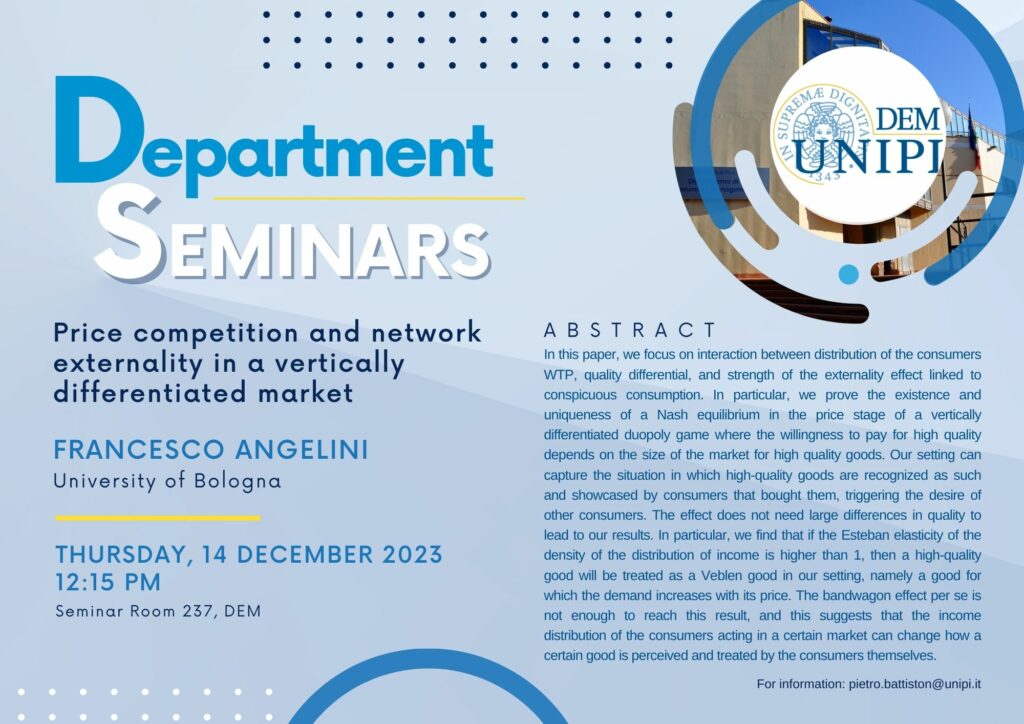Date: Thursday, 14 December 2023, at 12:15 pm
Venue: Seminar Room 237, DEM
Speaker: Francesco Angelini (University of Bologna)
Title: “Price competition and network externality in a vertically differentiated market”
Abstract:
The phenomenon of conspicuous consumption concerns the domain of consumer behavior and its relationship with social motivations. The theory suggests that individuals’ consumption decisions are not solely driven by personal needs and preferences but are also influenced by the consumption choices of others, resulting in what is known as consumption or network externalities. These effects can be framed within what Leibenstein (1950) called the nonfunctional demand types, namely the part of the demand that does not pertain to the good’s qualities.
Conspicuous consumption also interacts with income distribution and wealth disparities. As individuals strive to showcase their affluence through luxury goods and services, income inequality can be perpetuated. The pursuit of conspicuous consumption by the affluent segments of society can lead to resource allocation imbalances, as a significant portion of income and resources is directed towards non-essential goods. This dynamic can have implications for social welfare, equality, and the overall distribution of wealth in an economy.
Conspicuous consumption also interacts with income distribution and wealth disparities. As individuals strive to showcase their affluence through luxury goods and services, income inequality can be perpetuated. The pursuit of conspicuous consumption by the affluent segments of society can lead to resource allocation imbalances, as a significant portion of income and resources is directed towards non-essential goods. This dynamic can have implications for social welfare, equality, and the overall distribution of wealth in an economy.
In this paper, we focus on interaction between distribution of the consumers WTP, quality differential, and strength of the externality effect linked to conspicuous consumption. In particular, we prove the existence and uniqueness of a Nash equilibrium in the price stage of a vertically differentiated duopoly game where the willingness to pay for high quality depends on the size of the market for high quality goods. Our setting can capture the situation in which high-quality goods are recognized as such and showcased by consumers that bought them, triggering the desire of other consumers. The effect does not need large differences in quality to lead to our results. In particular, we find that if the Esteban elasticity of the density of the distribution of income is higher than 1, then a high-quality good will be treated as a Veblen good in our setting, namely a good for which the demand increases with its price. The bandwagon effect per se is not enough to reach this result, and this suggests that the income distribution of the consumers acting in a certain market can change how a certain good is perceived and treated by the consumers themselves.
Seminar organizers: Pietro Battiston
Download area
Seminar Francesco Angelini – Poster
Information and contacts

